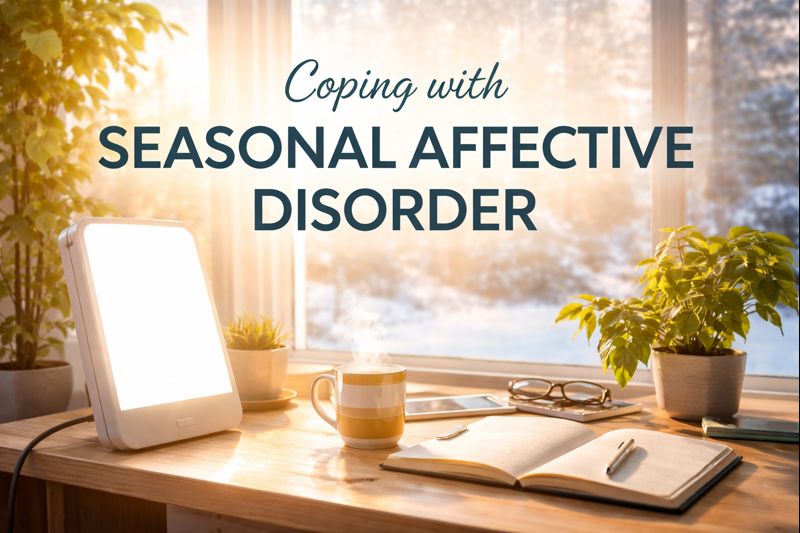By Dr. Meghan Britton
Menopause is a natural life stage that marks the end of a woman’s reproductive years. Typically occurring between the ages of 45 and 55, menopause brings various symptoms like hot flashes, night sweats, mood swings, and sleep disturbances. While many women turn to hormone replacement therapy (HRT) to manage these symptoms, others are seeking more natural or holistic treatments to supplement or as an alternative to HRT. For busy individuals, finding safe and effective ways to manage menopause symptoms can be a challenge. This article will explore several complementary and alternative treatments for menopause, focusing on options that are practical and backed by research, while providing tips for incorporating them into your routine.
Understanding Complementary and Alternative Medicine (CAM)
Complementary and alternative medicine (CAM) includes therapies used alongside or instead of traditional treatments. In the case of menopause, CAM treatments often focus on providing relief from symptoms without relying on prescription medications. These therapies range from herbal remedies and nutritional supplements to practices like yoga and acupuncture.
Many women turn to CAM because they prefer a natural approach or wish to avoid potential side effects from conventional treatments. If you’re navigating menopause, integrating CAM into your routine might help manage symptoms in a way that fits your lifestyle.
Here are some of the most common CAM treatments for menopause, along with practical information about their effectiveness and how to fit them into a busy schedule.
1. Herbal Remedies
Herbal remedies are one of the most common forms of CAM for menopause. Many herbs are believed to ease symptoms like hot flashes and mood swings by mimicking estrogen or balancing hormones.
- Black Cohosh: Black cohosh is one of the most widely used herbs for alleviating hot flashes and night sweats. Some studies have shown it can help reduce the frequency and severity of these symptoms. However, it’s important to note that it can have side effects in some people, and should be used with caution, particularly in women with liver issues or who are taking other medications.
- Soy Isoflavones: Soy contains phytoestrogens, plant compounds that act like estrogen in the body. Many women use soy-based products or supplements to help manage hot flashes. If you’re looking for an easy way to add more soy to your diet, consider incorporating more tofu, edamame, or soy milk into your meals.
- Red Clover: Red clover is another herbal remedy that contains isoflavones. Some studies suggest it may help reduce hot flashes, but the research is still mixed. It is best to discuss the risks and benefits with your healthcare provider.
2. Acupuncture and Acupressure
Acupuncture and acupressure are traditional Chinese medicine techniques that involve stimulating specific neurovascularly rich points on the body to restore balance and reduce symptoms like hot flashes, stress, and sleep issues.
- Acupuncture: This involves the insertion of thin needles at specific points in the body. While it may sound intimidating, acupuncture is generally well-tolerated and has been shown in some studies to reduce hot flashes and improve overall mood.
- Acupressure: If acupuncture needles don’t appeal to you, acupressure offers a similar benefit but without the use of needles. It involves applying pressure to specific points on the body. Acupressure is something you can even do a limited version of on your own between visits, with guidance from your acupuncturist.
3. Mind-Body Therapies
Mind-body therapies like yoga, meditation, and deep-breathing exercises are popular among women looking to manage menopause-related stress, mood swings, and sleep disturbances. These therapies can be particularly effective when incorporated into a daily routine, helping you de-stress and feel more balanced.
- Yoga: Yoga combines movement, stretching, and mindfulness to improve flexibility, reduce stress, and alleviate physical discomfort. Many women find that yoga helps reduce hot flashes, improve sleep, and calm their minds. It is possible to find yoga sessions that fit into a busy schedule, such as 15-minute online sessions that can be done at home or during a break at work.
- Meditation and Mindfulness: Meditation helps to calm the mind and reduce anxiety, which is often elevated during menopause. Mindfulness-based practices, which encourage you to stay present and focused on the current moment, have also been shown to reduce hot flashes and improve overall well-being. There are popular apps that offer short, guided sessions that can fit into even the busiest day.
- Cognitive Behavioral Therapy (CBT): CBT is a form of therapy that focuses on identifying and changing negative thought patterns. It has been proven effective in treating anxiety, depression, and sleep issues associated with menopause. Online CBT programs or working with a therapist remotely can be a convenient option for people with busy schedules or who live in more remote geographic areas.
4. Nutritional Supplements
Many women turn to nutritional supplements to support their health during menopause. Supplements can be an easy addition to one’s routine and may help improve bone health, reduce hot flashes, and support heart health, which are areas of concern for postmenopausal women.
- Calcium and Vitamin D: As estrogen levels decline, women become more at risk for osteoporosis. Calcium and vitamin D are essential for maintaining bone health. A daily supplement can help ensure recommended intake is met. In addition, calcium and vitamin D are found in foods like dairy products, leafy greens, and fortified cereals.
- Omega-3 Fatty Acids: Omega-3 fatty acids are known to support heart health and reduce inflammation. Research suggests they may also help alleviate mood swings and depression associated with menopause. Options include taking omega-3 supplements or adding more fatty fish like salmon to your diet for a natural source of these essential fats.
- Probiotics: Gut health can be impacted during menopause, leading to digestive issues and even mood swings. Probiotic supplements help maintain a healthy gut microbiome. One can either eat probiotic-rich foods like yogurt, kefir, and sauerkraut or take a supplement.
5. Lifestyle Modifications
In addition to supplements and therapies, making certain lifestyle changes can help you manage menopause symptoms. Small but consistent adjustments can make a big difference.
- Exercise: Regular physical activity is one of the most effective ways to reduce menopause symptoms, improve mood, and support overall health. Even a 20- minute walk can help reduce hot flashes, improve sleep, and support heart health. Cumulative exercise throughout the day is just as valuable as one long gym session; if this works better for you, try to incorporate quick workouts into your day, such as a brisk walk during lunch and then a short workout at home.
- Healthy Diet: A well-balanced diet is key to managing menopause symptoms. Focus on whole foods like fruits, vegetables, lean proteins, and whole grains. Avoid excess caffeine and sugar, which can worsen hot flashes and disrupt sleep. Planning meals in advance can help save time and make healthy eating easier.
- Sleep Hygiene: Sleep problems are common during menopause, but good sleep hygiene can help. Keep your bedroom cool, avoid caffeine late in the day, and aim for a consistent sleep schedule. Practicing relaxation techniques like deep breathing before bed can also help you wind down.
Scientific Evidence and Safety Considerations
While many CAM treatments show promise, it’s important to approach them with caution and balance. The effectiveness of herbal remedies and supplements can vary from person to person, and some treatments may interact with prescription medications.
Before starting any new supplement or therapy, it’s wise to consult with your healthcare provider, especially if you have underlying health conditions or are on medication.
Conclusion
Menopause doesn’t have to mean enduring uncomfortable symptoms. Complementary and alternative treatments offer a variety of options that can fit into even the busiest lifestyle. Whether you’re exploring herbal remedies, trying acupuncture, or incorporating yoga into your routine, these approaches can help you navigate menopause with greater ease and comfort. As always, it’s important to listen to your body, consult with a healthcare provider, and find the solutions that work best for you. With a bit of planning and commitment, you can manage menopause effectively while continuing to thrive in your daily life.





Thanks for the suggestions. Are your recommendations the same for post-menopausal women who continue to experience uncomfortable symptoms?
Thanks for the question, Lisabeth! While many of the same strategies may work to ease discomfort for post-menopausal women, we always recommend following up with a provider for specific recommendations. This will ensure that ones personal health preferences, family and past medical history, medications, etc., are taken into account. If you’d like personalized support with finding the right provider, we’d be happy to connect you with one of our Care Navigation Consultants. To be connected, go to https://soulbeing.com/for-members/ and complete the form. Thanks again!